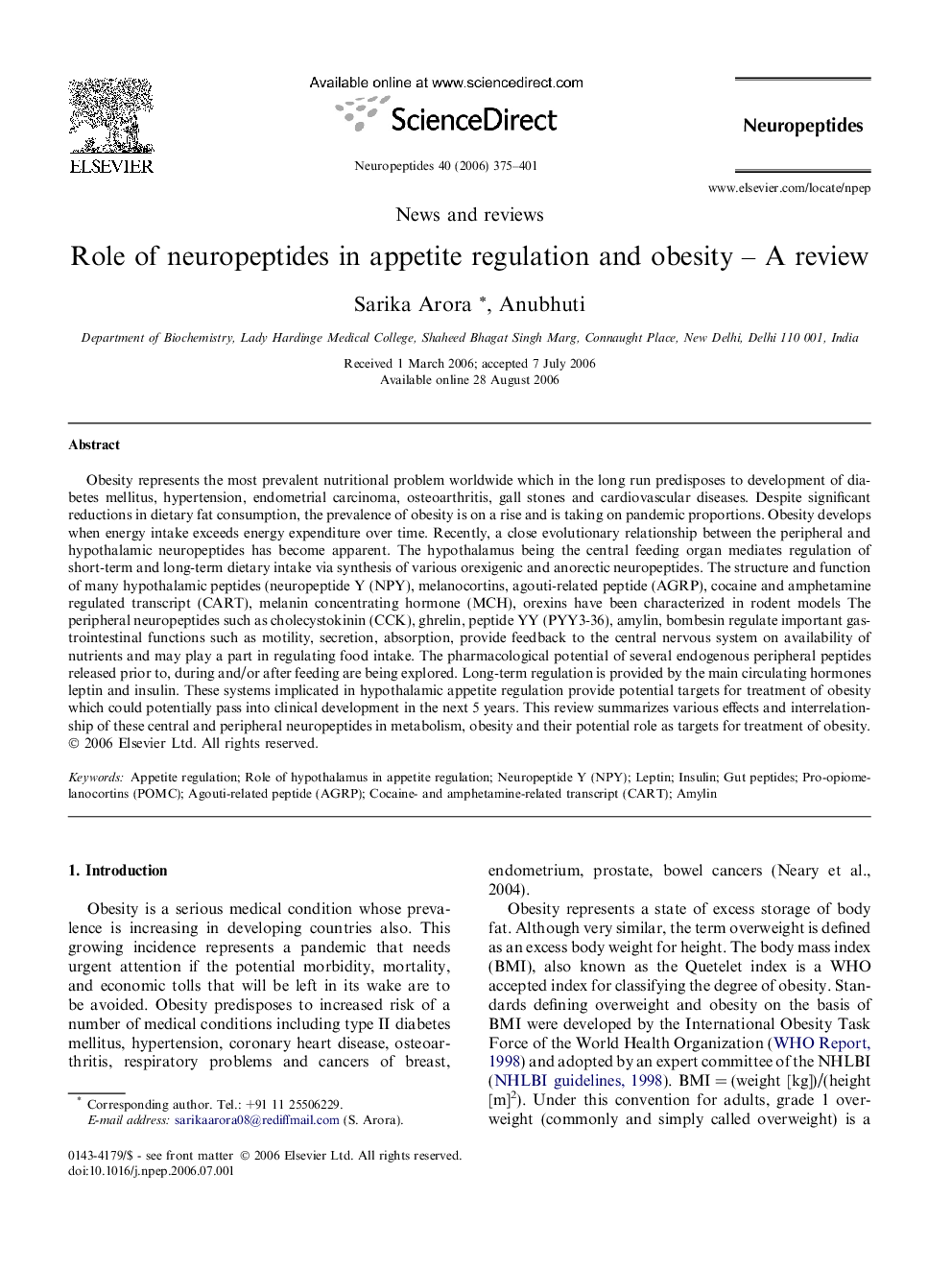| Article ID | Journal | Published Year | Pages | File Type |
|---|---|---|---|---|
| 2808365 | Neuropeptides | 2006 | 27 Pages |
Obesity represents the most prevalent nutritional problem worldwide which in the long run predisposes to development of diabetes mellitus, hypertension, endometrial carcinoma, osteoarthritis, gall stones and cardiovascular diseases. Despite significant reductions in dietary fat consumption, the prevalence of obesity is on a rise and is taking on pandemic proportions. Obesity develops when energy intake exceeds energy expenditure over time. Recently, a close evolutionary relationship between the peripheral and hypothalamic neuropeptides has become apparent. The hypothalamus being the central feeding organ mediates regulation of short-term and long-term dietary intake via synthesis of various orexigenic and anorectic neuropeptides. The structure and function of many hypothalamic peptides (neuropeptide Y (NPY), melanocortins, agouti-related peptide (AGRP), cocaine and amphetamine regulated transcript (CART), melanin concentrating hormone (MCH), orexins have been characterized in rodent models The peripheral neuropeptides such as cholecystokinin (CCK), ghrelin, peptide YY (PYY3-36), amylin, bombesin regulate important gastrointestinal functions such as motility, secretion, absorption, provide feedback to the central nervous system on availability of nutrients and may play a part in regulating food intake. The pharmacological potential of several endogenous peripheral peptides released prior to, during and/or after feeding are being explored. Long-term regulation is provided by the main circulating hormones leptin and insulin. These systems implicated in hypothalamic appetite regulation provide potential targets for treatment of obesity which could potentially pass into clinical development in the next 5 years. This review summarizes various effects and interrelationship of these central and peripheral neuropeptides in metabolism, obesity and their potential role as targets for treatment of obesity.
